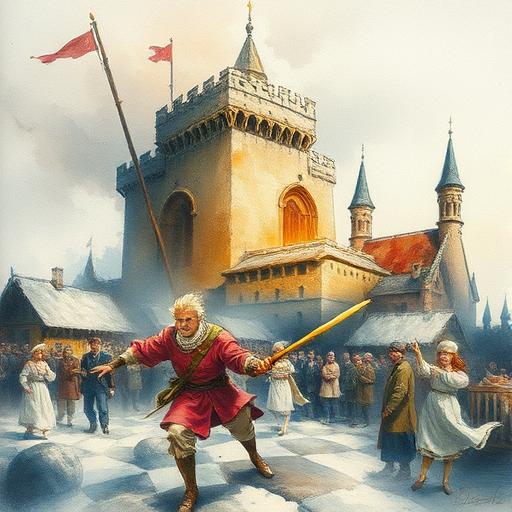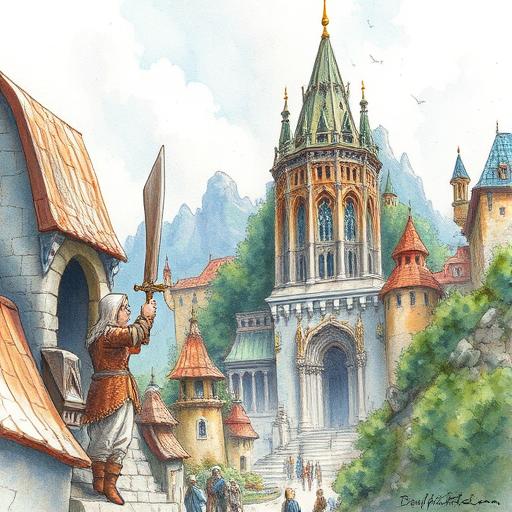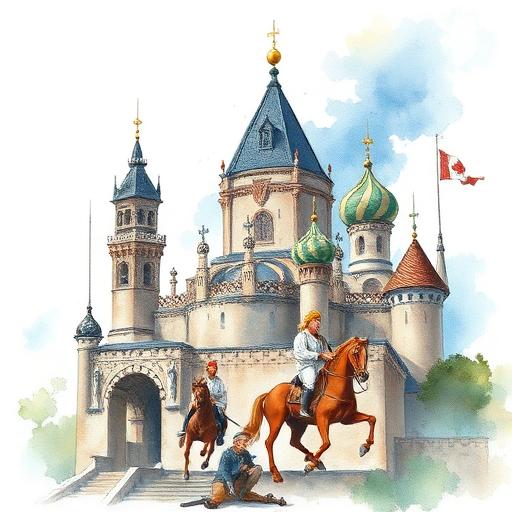Adapting Real-World Historical Events into Compelling Fantasy Narratives
This article explores the art of incorporating real-world historical events into fantasy worldbuilding, providing writers with practical tips and examples to craft unique and immersive stories. By drawing from history, writers can add depth and richness to their fantasy worlds, making them more believable and engaging for readers.

Introduction to Historical Adaptation
When it comes to fantasy worldbuilding, adapting real-world historical events can be a powerful tool for creating compelling narratives. By drawing inspiration from actual events, writers can infuse their stories with a sense of authenticity and depth. Consider the works of George R.R. Martin, who drew heavily from the Wars of the Roses when crafting the plot of Game of Thrones. This approach allows writers to tap into the complexities and nuances of human history, making their fantasy worlds feel more real and immersive.
Identifying Historical Events to Adapt
So, how do you choose which historical events to adapt into your fantasy narrative? Here are a few key considerations:
- Look for events that resonate with your story's themes and tone
- Consider the cultural and societal context of the event
- Think about how the event can be reimagined or reinterpreted in a fantasy setting For example, the Black Death could be reimagined as a magical plague, or the Russian Revolution could be reinterpreted as a struggle for power in a fantasy kingdom.
Adapting Historical Events into Fantasy Narratives
When adapting historical events into fantasy narratives, it's essential to balance fidelity to the original event with the needs of your story. Here are a few tips to keep in mind:
- Use historical events as inspiration, rather than direct copies
- Consider how the event can be modified or reinterpreted to fit your story's needs
- Think about how the event can be used to explore themes and ideas relevant to your story For more information on building believable societies and cultures in fantasy, be sure to check out our article on building believable societies and cultures in fantasy and science fiction.
Examples of Successful Adaptation
Let's look at a few examples of successful adaptation:
| Event | Fantasy Adaptation | Story |
|---|---|---|
| The Crusades | A holy war between rival factions | A Song of Ice and Fire |
| The French Revolution | A struggle for power in a fantasy kingdom | The First Law trilogy |
| The Mongol Conquests | A campaign of conquest by a powerful fantasy empire | The Malazan Book of the Fallen |
| These examples demonstrate how historical events can be reimagined and reinterpreted in a fantasy setting, creating unique and compelling narratives. |
Avoiding Cultural Insensitivity
When adapting historical events into fantasy narratives, it's essential to avoid cultural insensitivity and appropriation. Here are a few key considerations:
- Be respectful of the cultural and historical context of the event
- Avoid using cultural or historical elements as mere window dressing
- Think about how the event can be used to explore themes and ideas relevant to your story For more information on allusions to religion in fantasy, be sure to check out our article on allusions to religion.
Conclusion
Adapting real-world historical events into fantasy narratives can be a powerful tool for creating compelling stories. By drawing inspiration from actual events, writers can add depth and richness to their fantasy worlds, making them more believable and engaging for readers. Whether you're building a world from scratch or looking to add nuance to an existing story, historical adaptation is a technique worth considering. With careful attention to detail and a willingness to reimagine and reinterpret historical events, writers can craft unique and immersive narratives that will leave readers spellbound.
Comments
Comments are hidden to save bandwidth. Load them when you want to read or leave one.






